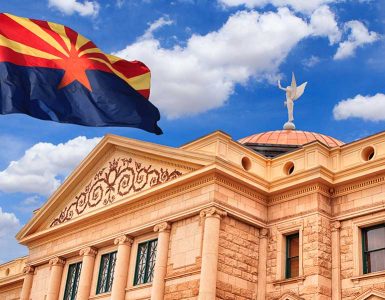The Arizona Board of Regents approved a spending plan for fiscal year 2020 that includes $15 million to expand the Arizona Teachers Academy and increased scholarship funding for Maricopa County Community College students.
The Arizona Board of Regents (ABOR), which oversees the state’s public university system, is working to transform the educational experience for future teachers by providing incentives for talented graduates to work in the classroom, according to a press release from MCCCD.
The new budget also allocates funds among established programs at the Maricopa County Community College District (MCCCD), Pima Community College and the state universities.
“On behalf of the Maricopa Community Colleges, I thank the Arizona Board of Regents for distributing funds equitably,” said Dr. Maria Harper-Marinick, MCCCD chancellor. “The budget will provide our community with tremendous social and economic benefits, strengthening our economy and future workforce.”
MCCCD offers post-baccalaureate teacher certification programs at Scottsdale Community College and Rio Salado College, each with a strong emphasis on clinical practice with individual support from professors and mentor teachers, according to the press release.
Since its inception in 2017, the Arizona Teachers Academy (ATA) has seen enrollment of prospective teachers more than double, “affirming the interest of students and demand from public schools that are embracing the program by providing employment opportunities during the student-teaching experience and upon graduation,” according to the MCCCD.
The approved distribution of funds by ABOR will provide tuition waiver scholarships for MCCCD students and prohibits participating institutions from charging students the difference between the cost of tuition and fees and the amount of gift aid received.
The FY2020 budget includes $3,000 in tuition waiver scholarships per post-baccalaureate student each year, totaling about $909,465 in funding. The appropriation also includes $2,500 for each continuing teacher seeking National Board Certification.
“In a very short time, the ATA has become an innovative, first-rate teachers’ college,” MCCCD said in the press release. “The graduates of the Academy are a remarkable reflection of the communities they serve. The ATA attracts traditional students looking to earn a bachelor’s degree as well as adults pursuing new career opportunities with a post-baccalaureate teaching certification.”
Students who have already earned a bachelor’s degree may need as little as 12 to 24 months to receive certification, and in some cases they can teach in public or charter schools simultaneously.
“It is a reflection of the ATA’s success that Gov. Ducey’s 2020 budget expanded permanent funding for the Academy,” MCCCD said. “This is just the beginning. As the Academy grows, so does its roadmap for other states looking to address teacher shortages.”
















Add comment